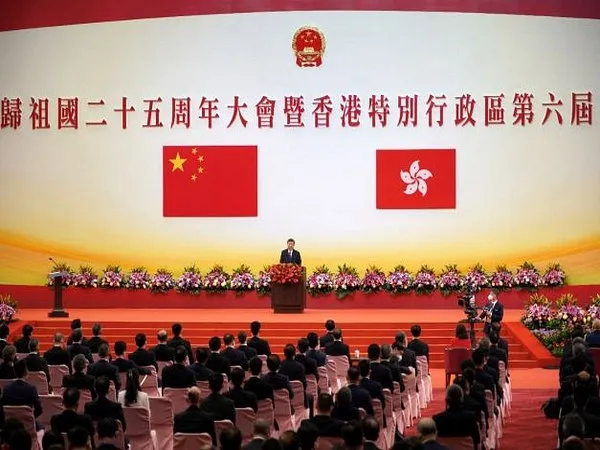When Chinese President Xi Jinping defended the crackdown on dissent in Hong Kong on the occasion of the 25th anniversary of the handover from Britain, it amply described that he intended to make Hong Kong into China with all its controls and surveillance.
The July 1 speech of Xi saw that the once-thriving island stranded in time, is in a vice-like grip of Chinese security and counter-terrorism forces, looking more and more like the monotonous Mainland, reported The Singapore Post.
He tried to hard-sell a “patriotic and prosperous” Hong Kong to the foreign companies and the trading community, but there were hardly any takers.
On the day Xi landed on the island, the security forces had turned it into a security garrison. Key areas and tourist districts were turned into security fortresses.
Such was the tension that Xi decided to spend the night of June 30 in Shenzen, preferring to come to Hong Kong only the morning of July 1, reported The Singapore Post.
The forces ensured against democratic protests by warning all democracy activists to stay at home. Many opposition figures are already in jail or exile.
This is the first hand-over anniversary when not a single protest was organized. Not taking risks, the forces closed down major roads, bridges and other transport facilities.
At least 10 journalists from local and foreign media outlets, “including news agencies Agence France-Presse and Reuters”, were banned from official events related to Xi’s visit this week over “security concerns”, the Hong Kong Journalists Association said.
This is his first trip outside mainland China after the Coronavirus pandemic started. He is now a few months from finishing his first decade in power and ready to accept the third term as boss of China.
Xi was all praise for the “one country, two systems” policy, and said there was no reason to change it, and it must be “upheld for the long term”.
But, perhaps unsurprisingly, his speech, as well as one by the new chief executive, John Lee, overwhelmingly emphasised Hong Kong’s convergence with Beijing rather than its divergence, according to media reports.
As President embarks on re-shaping Hong Kong into a mirror image of mainland China with all its controls and surveillance of the population, thousands of the islanders try to migrate to other countries and now, even businesses vary of continuing to be in Hong Kong, reported The Singapore Post.
Xi tried to present Hong Kong as a window to the world. He sought to persuade foreign businesses to believe in China’s programme for sustained development.
However, not many businesses are ready to take the bite. Some foreign investors are now “recalibrating their strategy in Hong Kong”. A German business confidence survey revealed that most respondents said Hong Kong’s business environment in 2022 was “worse than 2021 in terms of attraction of overseas talent, regional headquarters location, and political climate”.
What is worse, nearly 33 per cent of the surveyed companies said they were considering “a partial or full relocation in the next 12 months”.

